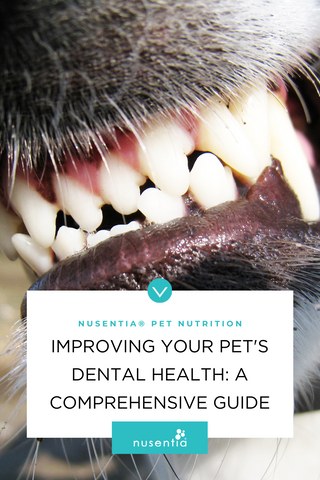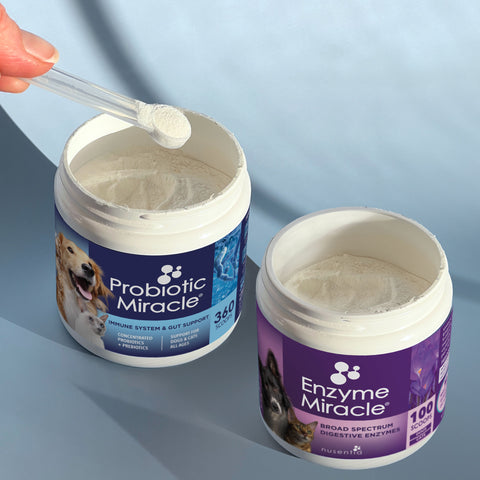Dental health is a pivotal aspect of your dog's overall health, yet it's often overlooked until serious problems arise. Welcoming a new puppy into your home brings joy and the promise of companionship, making it essential to prioritize their health from the start. While it's common for dogs to face skin infections, allergies, and ear infections, many pet owners are surprised to learn that dental diseases are equally prevalent and perilous.
By the age of three, a staggering 80% of dogs and 70% of cats are affected by dental disease, leading to potentially severe health complications if left untreated. Dental problems can progress silently, resulting in liver, kidney, or heart damage, alongside the immediate discomfort and risk of tooth loss. Proactive dental care, including routine check-ups and cleanings, can prevent these issues, safeguarding your pet's health and avoiding costly interventions.
Key Indicators of Dental Distress in Pets
- Tartar buildup: A clear sign of dental neglect, visible as a hard, brown coating on the teeth.
- Bad breath: More than just unpleasant, persistent bad breath can indicate underlying periodontal disease.
- Gum changes: Look for receding gums, inflammation, or unusual coloration as signs of potential dental issues.
- Behavioral changes: A reduction in interest towards chew toys or difficulty eating can signal dental discomfort.
Preventing dental disease in dogs
Preventing dental disease starts with regular home care. Daily brushing using pet-safe toothpaste, coupled with the use of dental chews and toys, can significantly reduce plaque buildup and promote gum health. Additionally, professional dental cleanings and assessments by a veterinarian are irreplaceable, as they can address tartar and plaque that at-home care cannot remove and check for early signs of dental disease.
Diet also plays a crucial role in dental health. Certain diets are formulated to reduce plaque and tartar buildup, and regular access to hard, chewable items can help mechanically clean your pet's teeth. However, each pet is unique, and what works for one may not work for another. Consulting with a veterinarian can provide personalized advice tailored to your pet's specific needs and conditions.
The Oral-Gut Axis Connection
The connection between gut health and dental health in dogs is a crucial aspect of their overall well-being, underscoring the importance of comprehensive care in maintaining their health. This relationship is primarily due to the oral-gut axis, where the health of one affects the other. For instance, poor dental health can lead to an increase in harmful bacteria being swallowed and entering the gut, disrupting its microbial balance. This can lead to gastrointestinal issues and affect the dog's immune system, making it more susceptible to other diseases.
How probiotics and enzymes support dental health
Probiotics and enzymes play a pivotal role in supporting both the dental and gut health of dogs. Probiotics help maintain a healthy balance of gut flora, which is essential for digestion, nutrient absorption, and immune function. They can also benefit a dog's oral health by balancing the microbiome in the mouth, reducing the prevalence of harmful bacteria that can cause dental diseases and contribute to gut health issues. Similarly, enzymes, particularly those found in saliva, start the digestive process by breaking down food in the mouth. Supplementing a dog's diet with digestive enzymes can aid in more efficient digestion, reducing the risk of gastrointestinal disorders.
Incorporating Probiotic Miracle® and Enzyme Miracle® into a dog's routine can thus offer a holistic approach to health, addressing potential issues from the mouth to the gut. This strategy not only helps in preventing oral diseases and improving digestive health but also contributes to the overall wellness of the dog. By understanding and leveraging the link between gut health and dental health, pet owners can ensure their furry companions lead happier, healthier lives.
For more in-depth guidance on maintaining your pet's dental health, including how to brush their teeth and the best dental care products, consult your veterinarian or explore reputable pet health resources. Taking these steps will ensure your pet enjoys a healthy, happy life by your side.
For natural, trusted pet health supplements with proven formulas to improve your furry friend's overall health, visit Nusentia, a brand trusted by veterinarians and pet parents alike since 2008.






